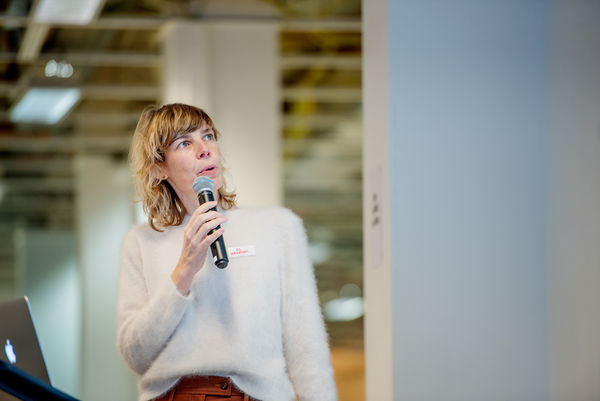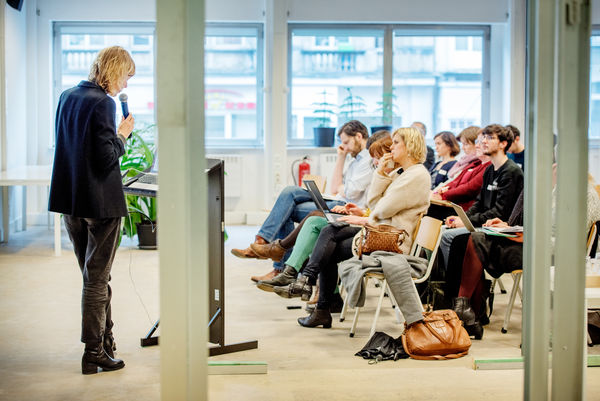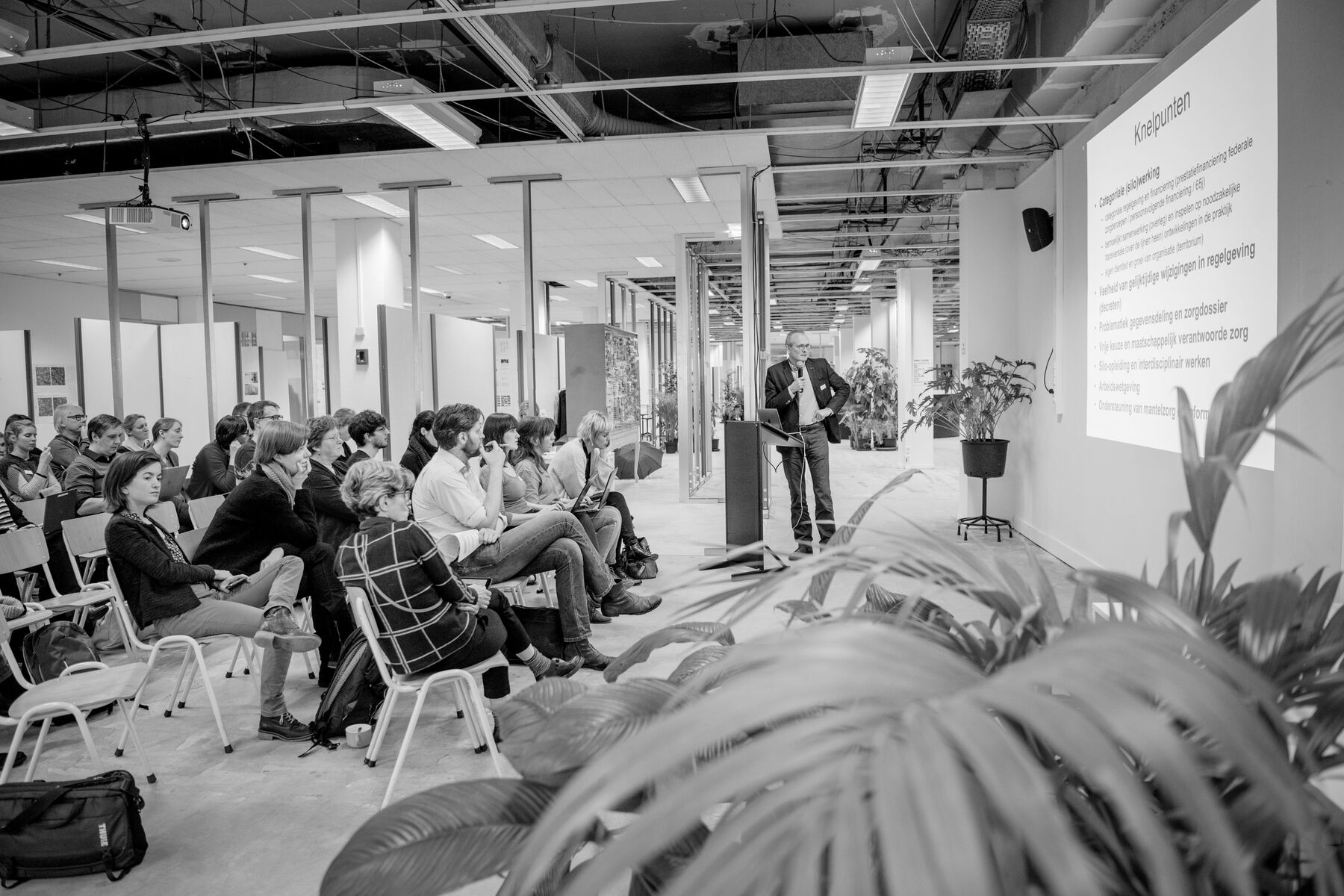The Atelier series Take Care! is all about invisible care as a socio-spatial task. The key question involves how to shape invisible care as ‘care that is effectively integrated in social and urban life, care that is embedded in our daily existence, is natural and self-evident’ (Peter Swinnen, Flemish Government Architect, 2012). Care is broadly defined as cure, care and support. How can we integrate these different care requirements in our society spatially as well as socially?
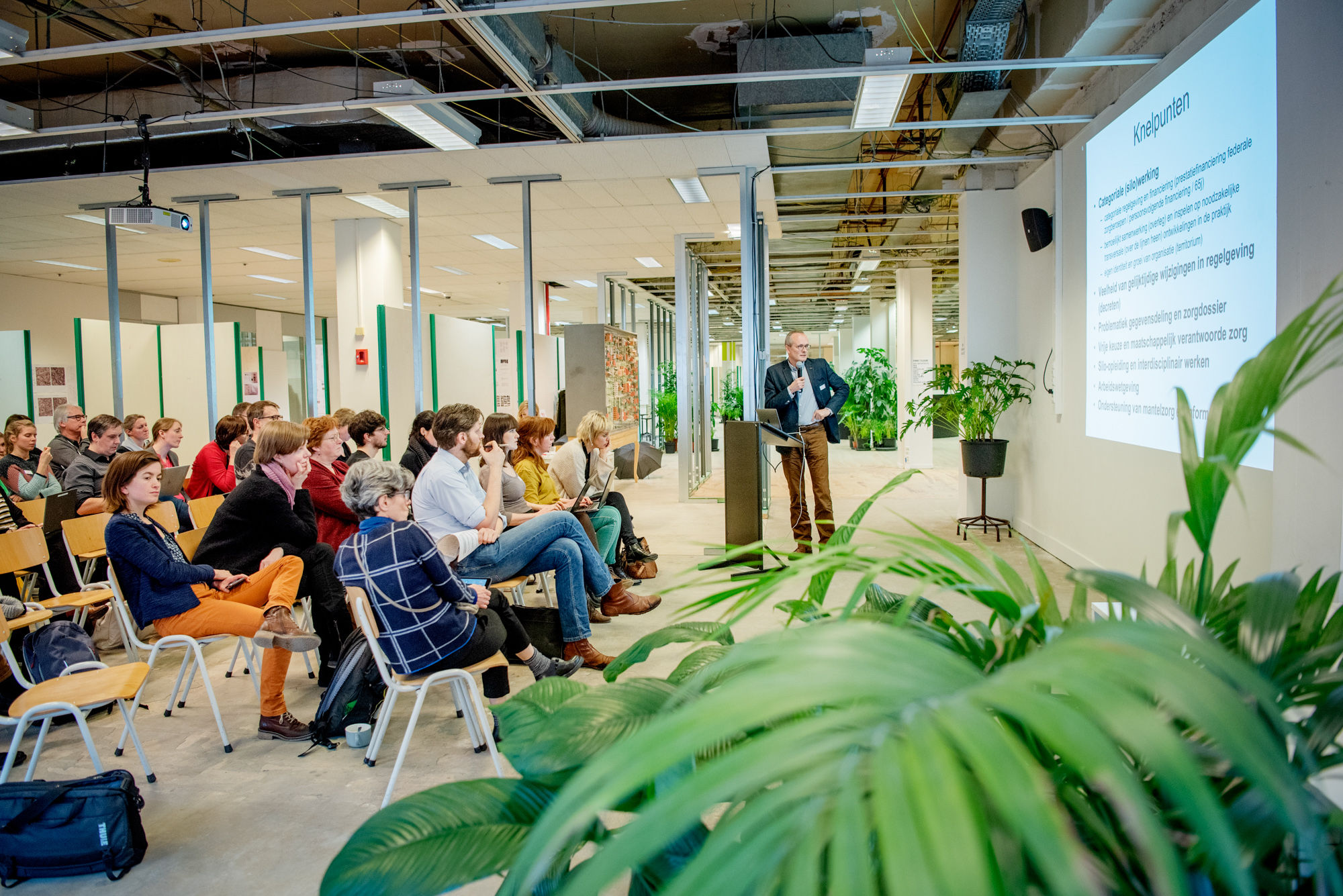

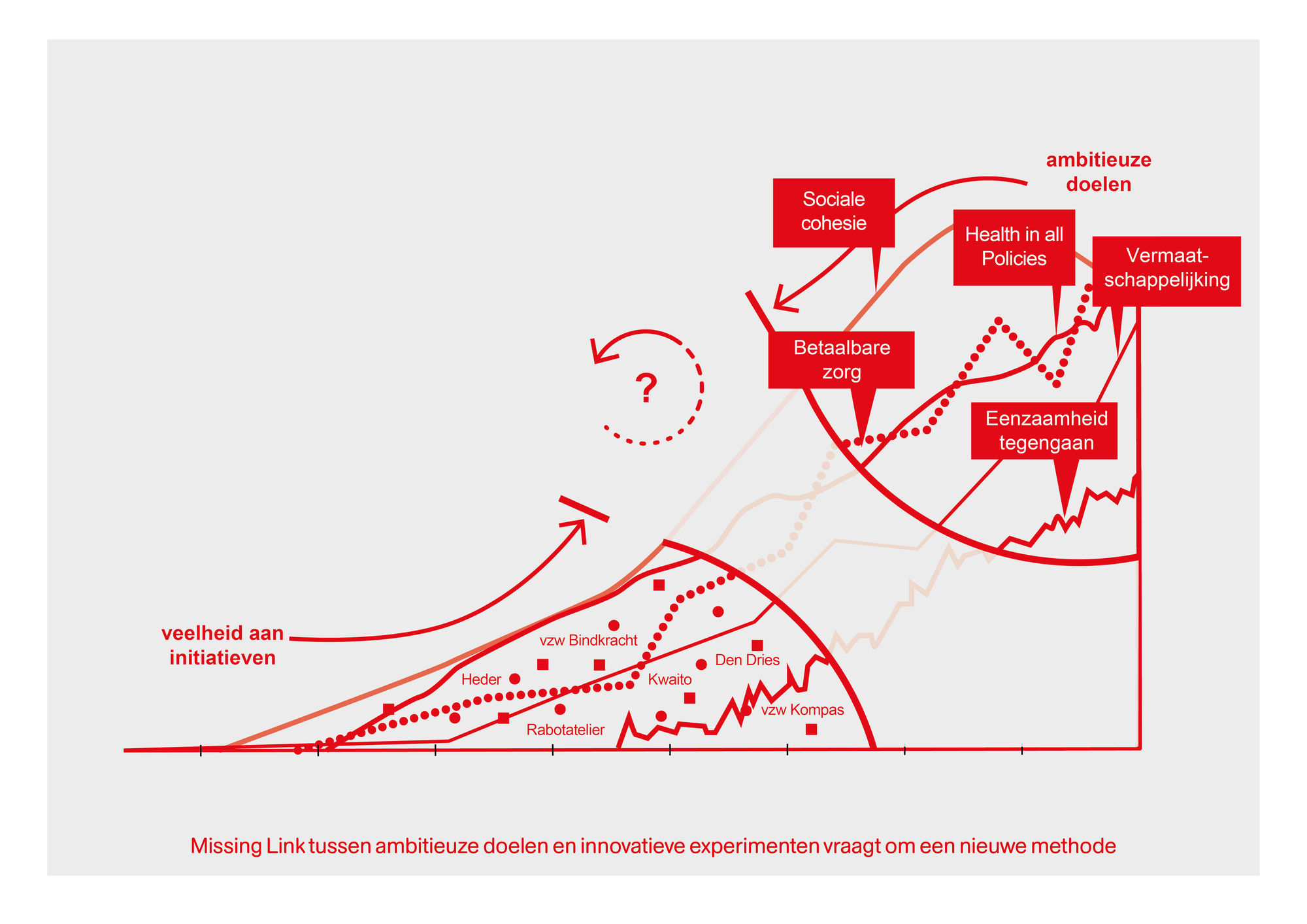
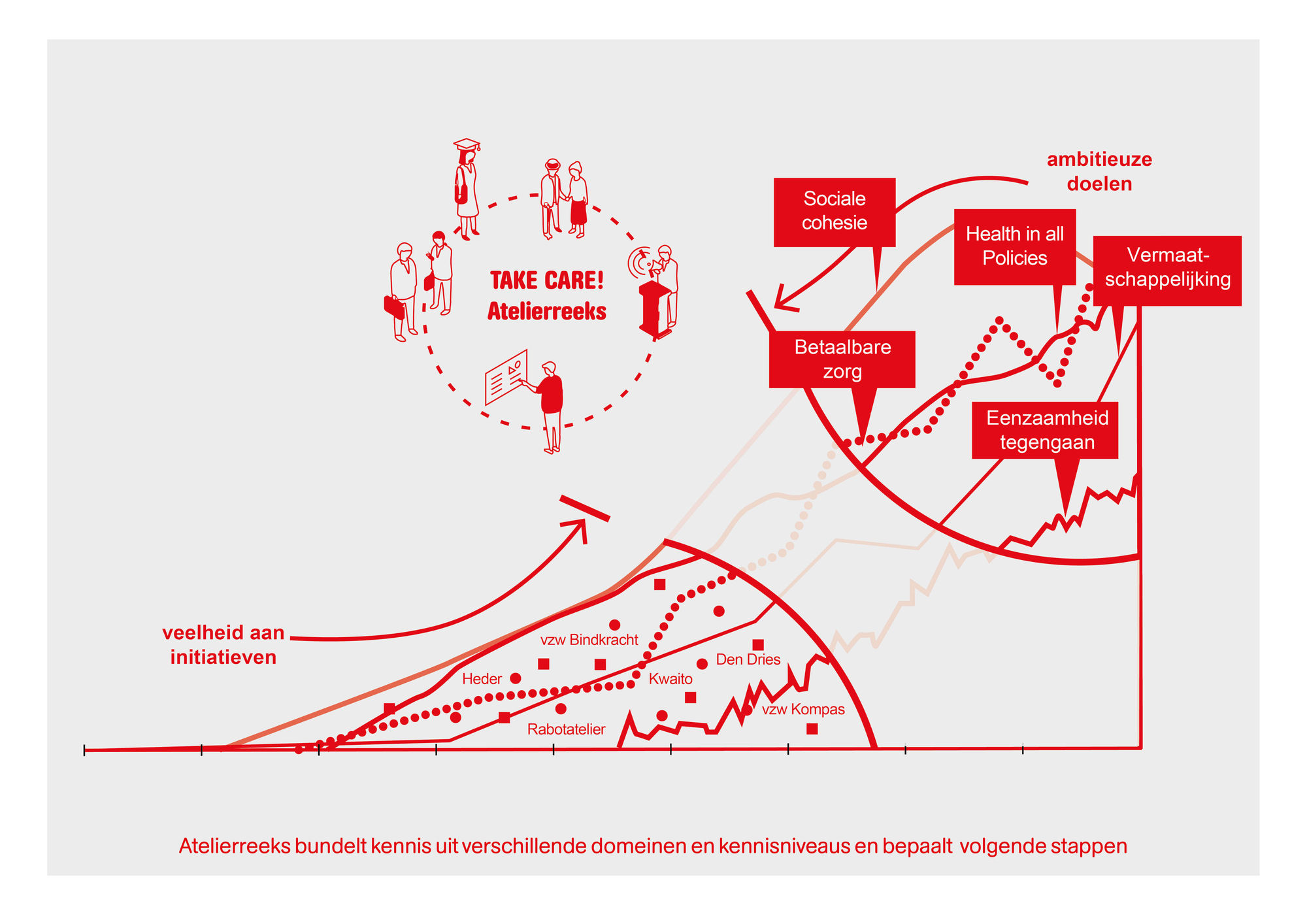
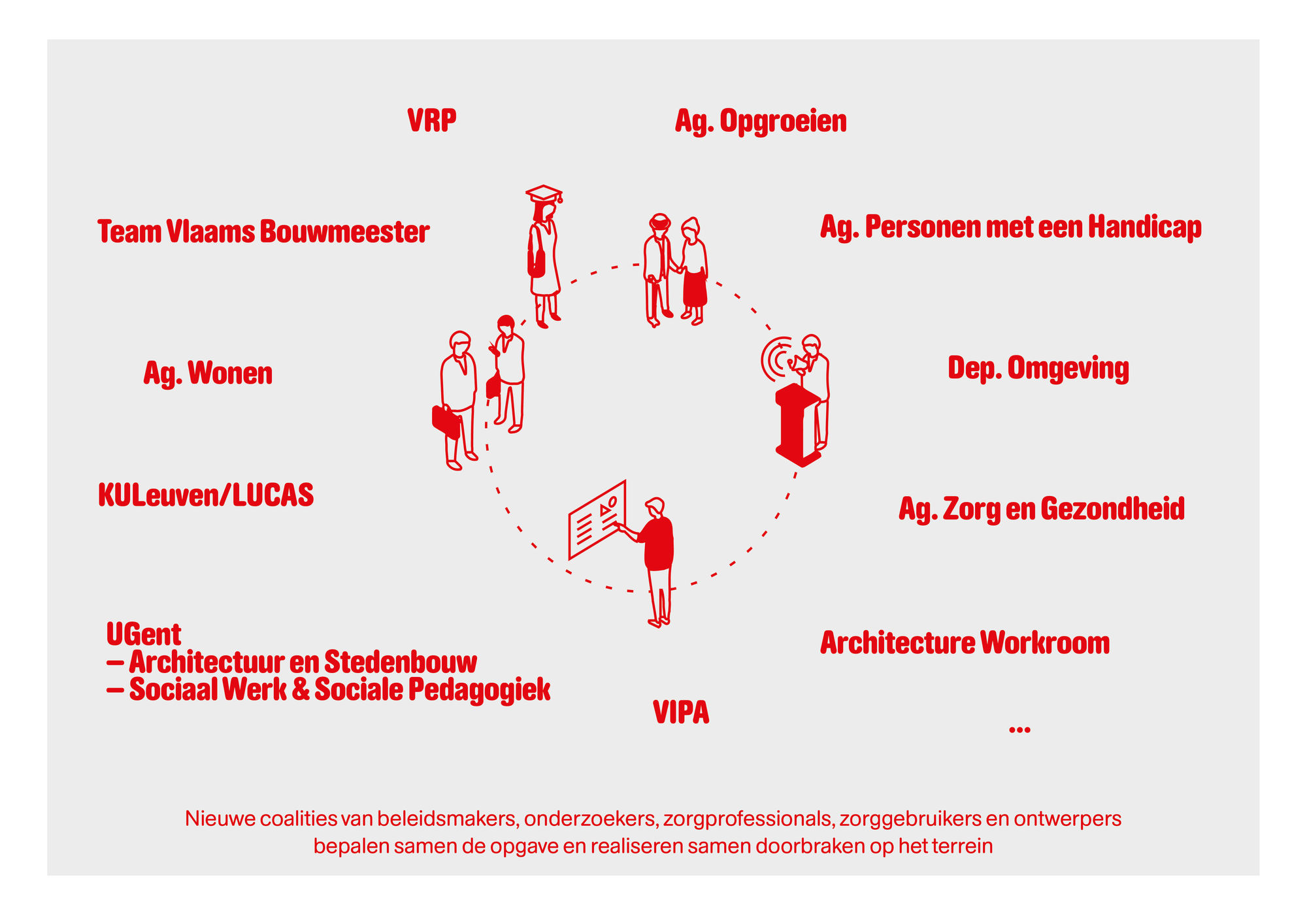
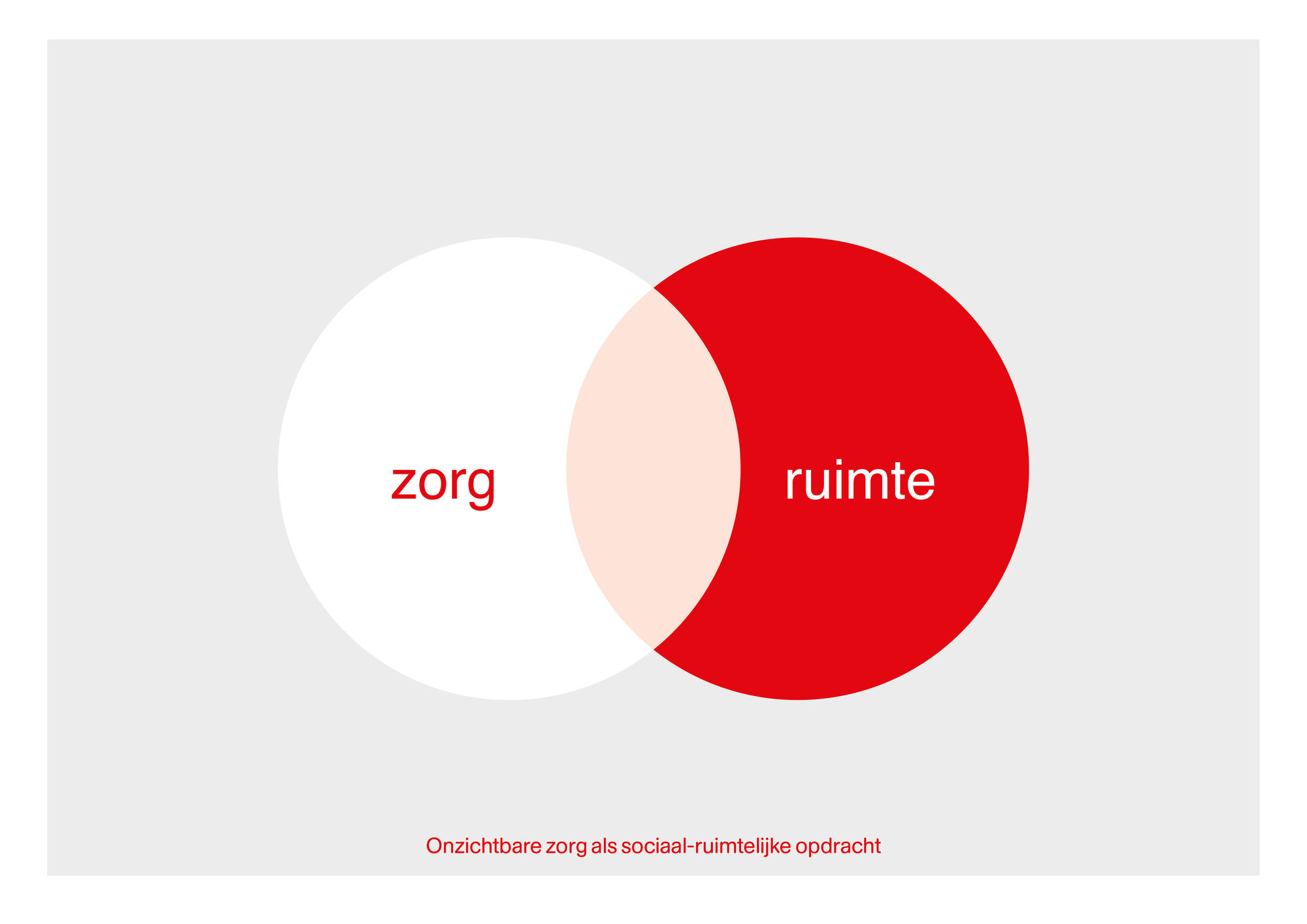
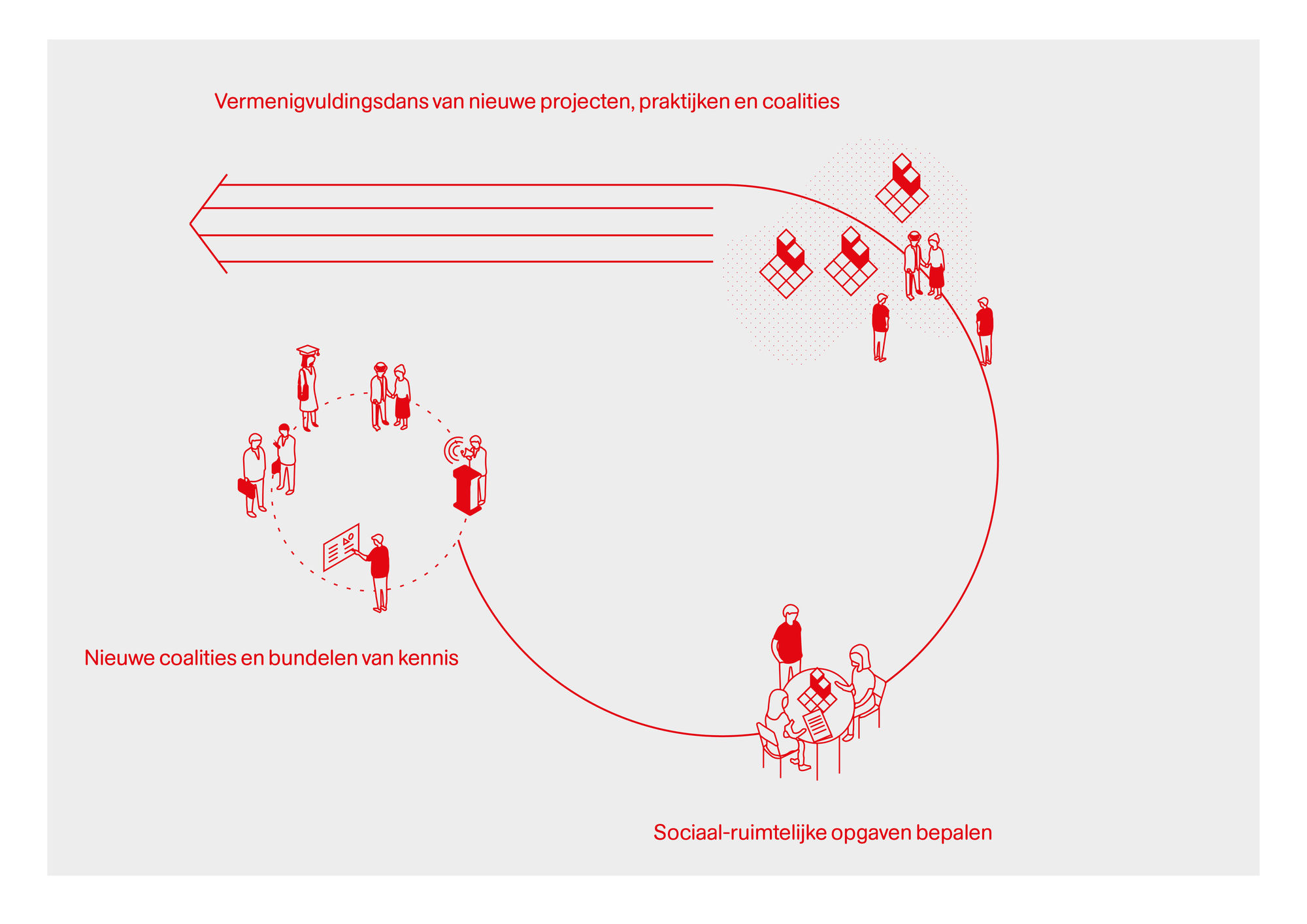
The Atelier series Take Care! is all about invisible care as a socio-spatial task. The key question involves how to shape invisible care as ‘care that is effectively integrated in social and urban life, care that is embedded in our daily existence, is natural and self-evident’ (Peter Swinnen, Flemish Government Architect, 2012). Care is broadly defined as cure, care and support. How can we integrate these different care requirements in our society spatially as well as socially?
The five-part Atelier series is based on a historic interpretation of the prevailing frameworks related to care, and focuses on the two major trends in care in recent years: the socialisation of care and the trend towards personal funding. Both trends demonstrate that greater emphasis is being placed on the independence and participation of the person requiring care to society, and reveal the need for an effective interplay between formal and informal care, between cure, care and support.
If we want to integrate these care requirements in our society in a 'natural and self-evident' manner, we have to ask ourselves what the preconditions and opportunities are, and examine the responsibilities borne by the different players. The way in which institutional care as well as our daily living, working and environment are currently organised is decisive with regard to how we arrange care.
During five afternoons we examine the policy and professional approaches that could promote or hinder invisible care together with representatives from different policy areas, research institutions, care organisations and architects.
By the end of the Atelier series the intention is to develop an agenda containing socio-spatial strategies and work processes on which the government, the profession and citizens needing care, as well as their network, civil society, the market and researchers can continue to work.
Atelier 1 – Socialisation of care
How do we find a balance between informal and formal care?
Atelier 2 – Follow the Money
How can (personal) funding facilitate invisible care? How does this translate into architecture?
Atelier 3 – Between home and the institution
How can a diverse housing stock respond to the gap between living at home and moving to a residential care facility?
Atelier 4 – Care for the neighbourhood
How can care remain inclusive, accessible and close by, both in cities and villages as on the countryside?
Atelier 5 – Beyond the isolation of the exception
How can invisible care connect shared interests and the needs of people instead of target group-specific symptoms? How can largescale care facilities in the countryside be inclusive and fully integrated in society?
From the professional and policy perspective there is increasing interest and belief in the productive synergy between care and space. The Atelier series aims to act as a crystallisation point and to bundle knowledge and experience currently acquired in different ways in, for example, (pilot) care projects, academic research and via policy. With the Atelier series we want to obtain greater insight into the specific (sub) challenges, diverse roles and responsibilities, thus creating a shared quest for possible levers for a caring living environment based on different levels of knowledge and policy areas.
Architecture Workroom was previously involved in diverse projects and initiatives at the interface between care and space: for example: IABR Atelier Utrecht Healthy City, Designing the Future, Caring Neighbourhoods Master Class, the first-line meeting ‘The Healthy City’.
